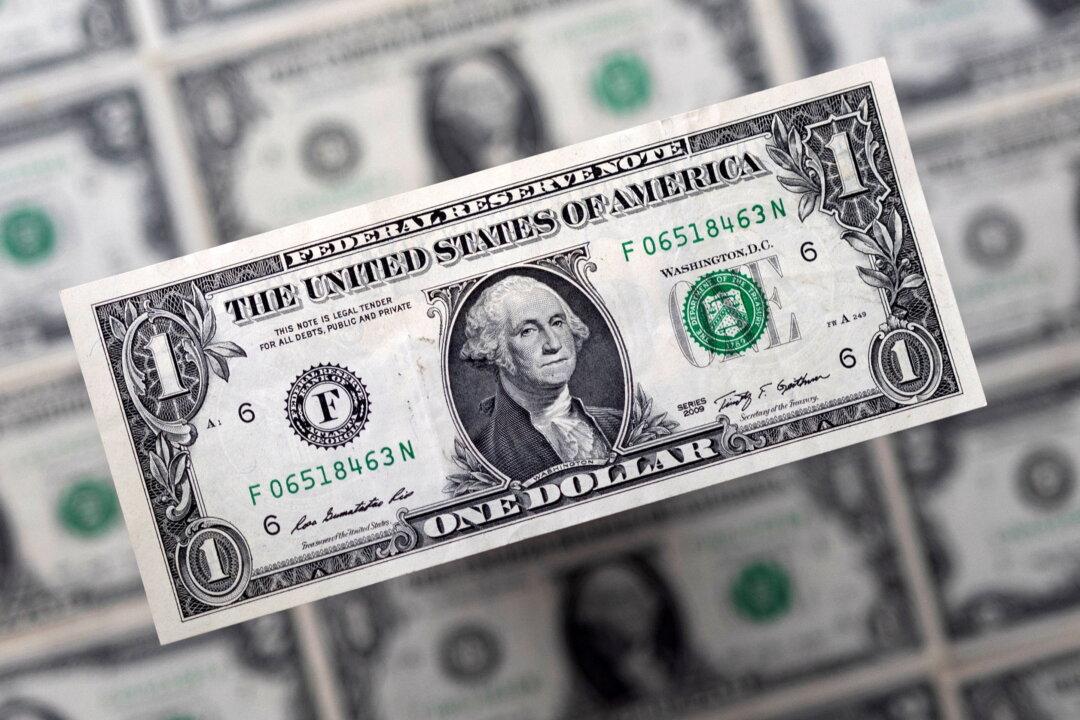The U.S. dollar hit a 20-year high on April 28 as rival global currencies such as the Japanese yen, the British pound, and the euro suffered a major decline in value.
The shakeup coincided with the Russian government cutting off gas supplies to Poland and Bulgaria on April 27 because those countries refused to pay in rubles, a recent demand from Russia to its trade partners in response to Western sanctions over the war in Ukraine.
The dollar index rose 0.8 percent to 103.83, its highest point since December 2002, and has been up 10 percent since mid-November 2021, with the majority of its gains made over the past three months.
The previous week, the index rose 0.4 percent to a level not seen since late March 2020.The U.S. dollar has benefited from economic concerns caused by the fallout in the European Union over Russia’s invasion of Ukraine as well as the Chinese Communist Party’s (CCP) draconian measures to stem the spread of the CCP virus, commonly known as the coronavirus, making the dollar a safe haven for investors.





